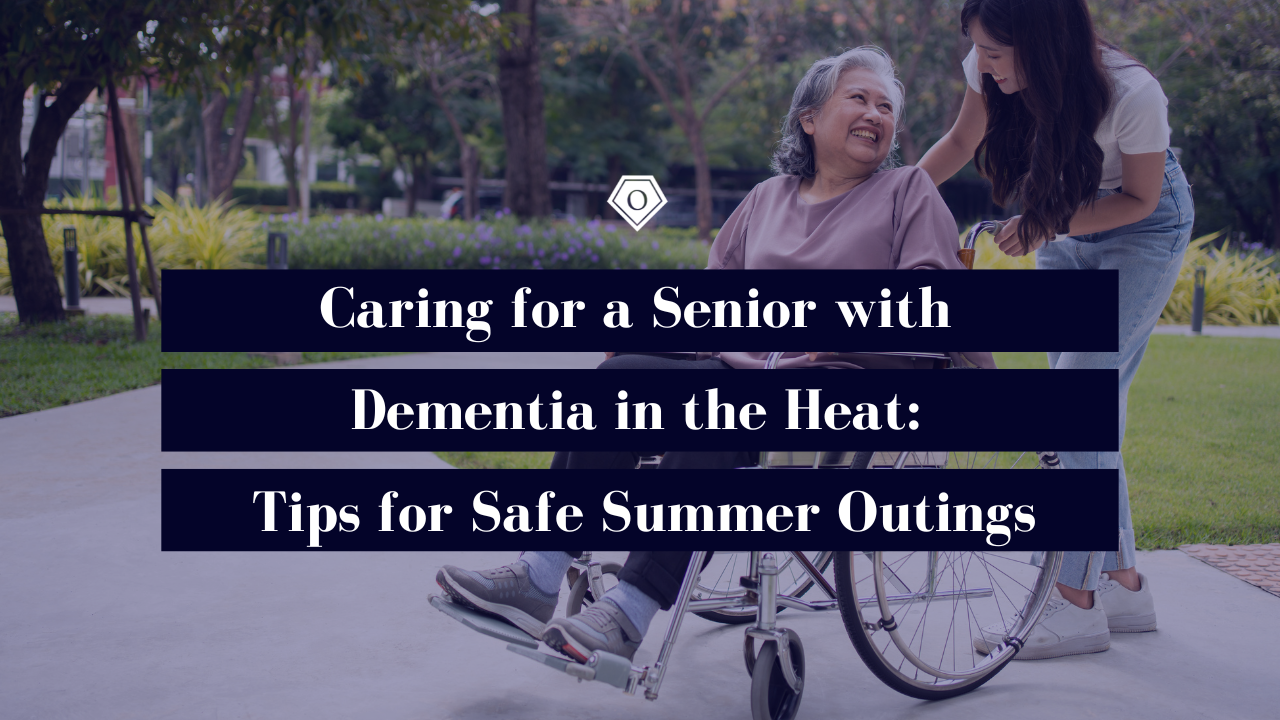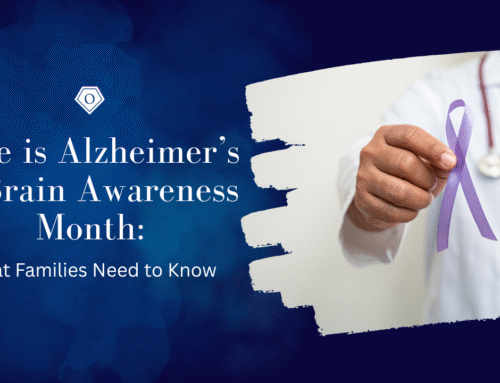Caring for a senior with dementia presents unique challenges, and the summer heat can add an extra layer of concern. Whether you’re running errands or enjoying outdoor activities, keeping your loved one safe and comfortable during hot weather is essential. Here’s what you need to know about managing dementia care in the heat, even during routine outings.
The Impact of Heat on Seniors with Dementia
Seniors are particularly vulnerable to the effects of heat, and those with dementia are at an even higher risk. Dementia can impair the body’s ability to regulate temperature and may reduce awareness of thirst, leading to dehydration. Additionally, cognitive impairments might make it difficult for them to recognize the symptoms of overheating or communicate their discomfort.
Why the Heat is Risky:
- Dehydration: Seniors with dementia may forget to drink water or may not recognize when they are thirsty, leading to dehydration.
- Heat Exhaustion or Heat Stroke: High temperatures can quickly lead to heat exhaustion or heat stroke, both of which are medical emergencies.
- Wandering Risk: Those with dementia may become disoriented and wander, increasing the risk of getting lost or being exposed to extreme heat for prolonged periods.
Tips for Safe Summer Errands and Outings
1. Plan Ahead
-
- Choose Cooler Times: Run errands early in the morning or later in the evening when temperatures are lower. Avoid going out during the hottest part of the day, typically between 10 a.m. and 4 p.m.
- Dress Appropriately: Dress your loved one in lightweight, loose-fitting, and light-colored clothing. A wide-brimmed hat and sunglasses can provide additional protection from the sun.
- Prepare for Hydration: Bring a water bottle and encourage regular sips, even if they don’t feel thirsty. Consider offering hydrating snacks like fruit.
2. Monitor for Signs of Overheating
-
- Know the Symptoms: Be on the lookout for signs of heat exhaustion, such as heavy sweating, weakness, dizziness, nausea, or headache. Heat stroke symptoms include a high body temperature, dry skin, confusion, and loss of consciousness.
- Check Their Skin: Feel your loved one’s skin for signs of overheating, such as excessive warmth or dryness. If they appear flushed or have a rapid pulse, take immediate action to cool them down.
3. Keep Outings Short and Safe
-
- Limit Time Outdoors: Try to minimize the time spent outside in the heat. If running errands, park as close as possible to entrances, and take advantage of shade or air-conditioned spaces whenever possible.
- Stay Calm and Reassuring: Seniors with dementia may become anxious or agitated in the heat. Stay calm and provide reassurance to help them feel secure during outings.
4. Ensure a Safe Environment
-
- Avoid Crowded Areas: Crowded places can be overwhelming and increase the risk of wandering or disorientation. Opt for quieter, less busy times to run errands.
- Provide Identification: Ensure your loved one has identification on them at all times, such as a medical ID bracelet or a note in their pocket with your contact information.
5. Have a Backup Plan
-
- Know Where to Go for Cooling: Identify nearby places where you can take a break and cool down, such as a mall, library, or coffee shop.
- Be Prepared for Emergencies: Carry a mobile phone and know the location of the nearest medical facility in case of an emergency.
Post-Errand Care: Cooling Down at Home
After returning home, it’s important to help your loved one cool down and rehydrate. Encourage them to rest in a cool, air-conditioned room, and offer water or a hydrating snack. You might also consider a cool shower or a damp washcloth on the forehead to help lower their body temperature.
Caring for a senior with dementia in the heat requires careful planning and vigilance. By taking these precautions, you can ensure that even routine errands are safe and comfortable for your loved one. Remember, their well-being depends on your ability to anticipate their needs and respond promptly to signs of discomfort. With the right approach, you can enjoy a safe and pleasant summer season together.
Alzheimer’s and Dementia Care
Onyx Home Care’s neurological disorder care is built around a system of support. This service includes skilled home care as well as a unique program that centers on the patient’s interests and stage of illness. Our goal is to see happy family members, patients and caregivers. Often times, caregivers feel remote. Our team includes each person in the home care process to provide inclusive care that helps the patient thrive.






